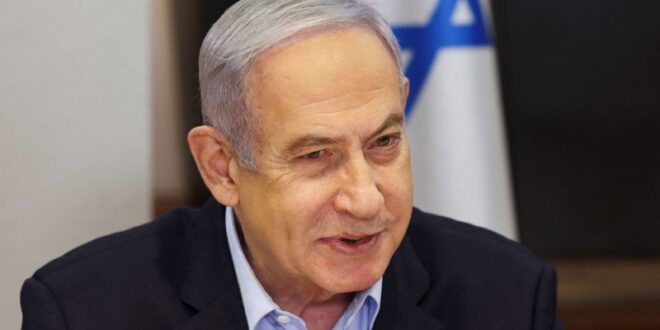Are Israel’s ties with the United States starting to resemble the relationship between the old political and economic elites and the Jewish community in Europe during the nineteenth and early twentieth centuries?
Political philosopher Hannah Arendt pointed out in her classic study of European anti-Semitism that it was the erosion in the power of those elites and their growing inability to protect the Jews of Europe that sealed their fate.
The new and angry social classes and political players lacked the power to challenge the ruling European elites. So they turned their frustration against the group they associated with the hated status quo—a group that was also very vulnerable.
A similar scenario may be taking place on an international level today, when a weaker and less confident United States is coming under pressure at home and abroad to reduce its global commitments and, more specifically, its support for the Jewish State.
This leaves Israel, its weakest link, vulnerable to attacks not only from Arab and Muslim nations but from political constituencies, challenging the status quo at home and abroad, including the so-called Global South worldwide that resent continuing U.S. support for Israel in its war against the Palestinians, as well as from activists in the United States that reject the pro-Israel narrative traditionally embraced by the nation’s elites.
Whether it is at the United Nations, the International Court of Justice at the Hague, American campuses, or the U.S. Congress, not only Israeli policies but also its own existence is being questioned in an international campaign, sometimes with anti-Semitic overtones.
American strategy in the Middle East has been based on the assumption that the U.S. diplomatic and military presence is, in part, meant to create a regional environment that protects Israel from regional challengers and reduces the constraints on its ability to pursue even its most ambitious goals. In short, the Pax Americana was ultimately designed to make the Middle East safe for greater Israel. But such a U.S. strategy has turned Israel into a modern-day crusader state, an outlet of a global power whose political, economic, and military headquarters are on the other side of the world.
From that perspective, America’s commitment to the security of the Israeli “province” would have always remained uncertain and fragile, reflecting changes in the balance of power in the United States and the shifting dynamics of U.S. politics and economics. The strength of the U.S.-Israeli connection is a product of unique conditions: America’s post-Cold War unipolar moment, U.S. economic gains of the 1990s, and the Global War on Terror.
These developments—coupled with bipartisan support for the Jewish State—have persuaded the U.S. presidents to align American policies with those of Israel. However, the combination of changes in the global balance of power and the erosion in U.S. status, combined with demographic-political changes that have weakened the old guard of the Democratic Party, have turned Israel into an ideal target for anti-American and anti-globalization forces.
We are already seeing the shape of things to come in the growing anti-Israelisentiments around the world in the fracturing of the Democratic Party’s support for Israel, and in the way anti-Israeli sentiments are starting to intertwine, in some cases, with dormant anti-Semitic attitudes.
Ironically, the original mission of classical Zionism was to release Europe’s Jews from the trap that Hannah Arendt described, to turn them into a normal people, living in a normal state, able to protect themselves—and not dependent on others for their survival. In the real world of nation-states and power politics and in the face of opposition from the surrounding Arab states, Israel has to search for support from foreign powers, including the Soviet Union in the late 1940s, France in the 1950s, and the United States since the 1967 Six-Day War.
However, that support was seen by Israel’s founders as a temporary measure to sustain its national security. The long-term goal was to use that outside support and combine it with Israel’s military power as a way of pressing the Arabs to recognize that Israel was a permanent feature in the Middle East and make peace with it.
Some of the Israeli policies that followed the 1967 Middle East War, especially from Israel’s right-wing forces, violated those principles. U.S. support was utilized in some cases to fulfill a messianic agenda of settling Judea and Samaria, or the West Bank, and pursuing the creeping annexation of those territories. And it only played into the hands of the extremists on the other side and helped to set off the vicious circle of Palestinian-Israeli violence that we are now witnessing.
But it may not be too late for the Israelis to figure out how to take a path toward normalcy in the Middle East that leads to peaceful co-existence with the Palestinians and their other neighbors in the next generations.
Establishing ties with Saudi Arabia as part of a regional strategy that would lead to co-existence with the Palestinians and forming an Arab-Israeli alliance could help move Israel in that direction. Most importantly, Israel has to do so as an independent nation-state—and not as a crusader state whose fate is determined by the decisions of a foreign and distant power.
Dr. Leon Hadar is a contributing editor with The National Interest, a Senior Fellow at the Foreign Policy Research Institute (FPRI) in Philadelphia, and a former research fellow in foreign policy studies at the Cato Institute. He has taught at American University in Washington, DC, and the University of Maryland, College Park. A columnist and blogger with Haaretz (Israel) and Washington correspondent for the Business Times of Singapore, he is a former United Nations bureau chief for the Jerusalem Post.
 Geostrategic Media Political Commentary, Analysis, Security, Defense
Geostrategic Media Political Commentary, Analysis, Security, Defense





